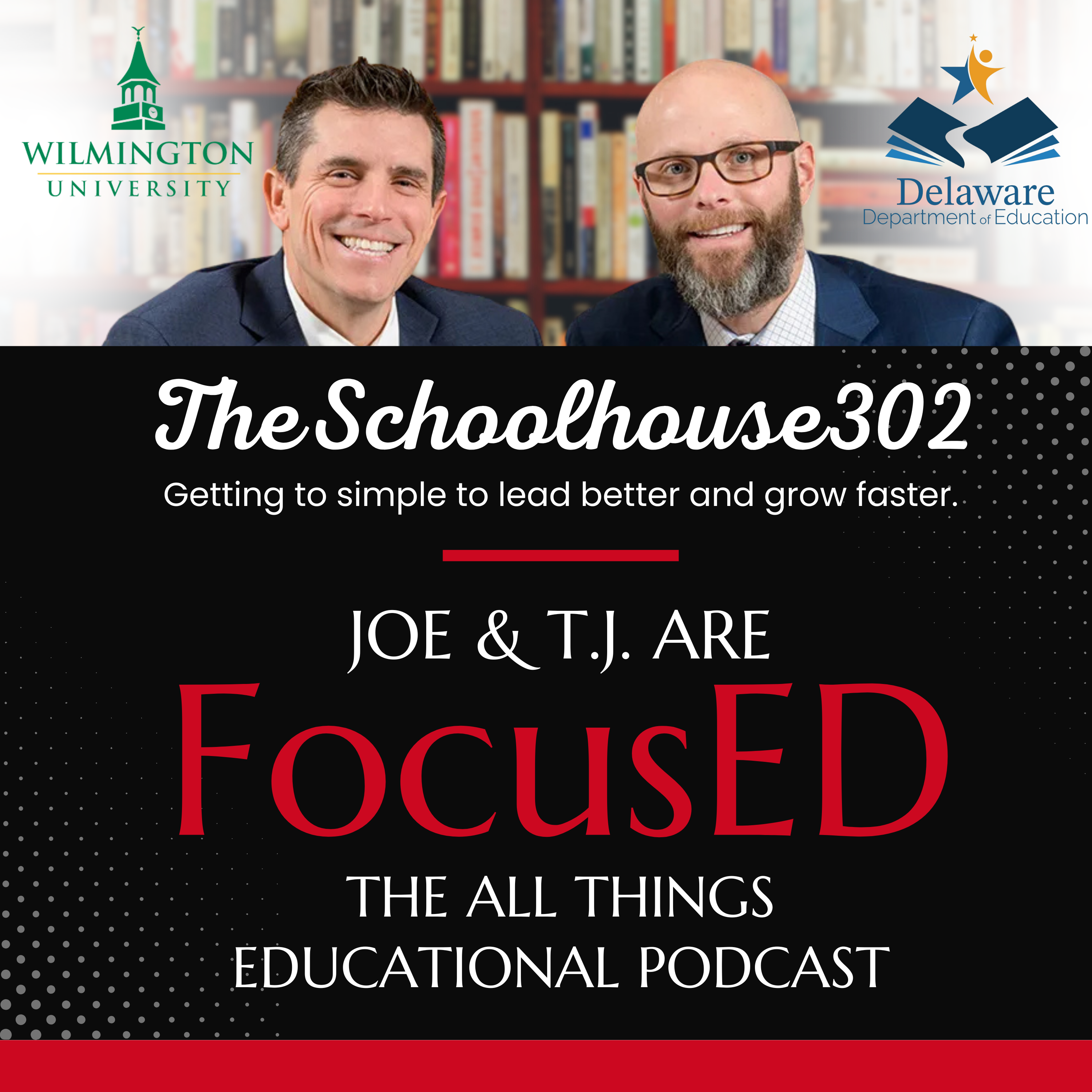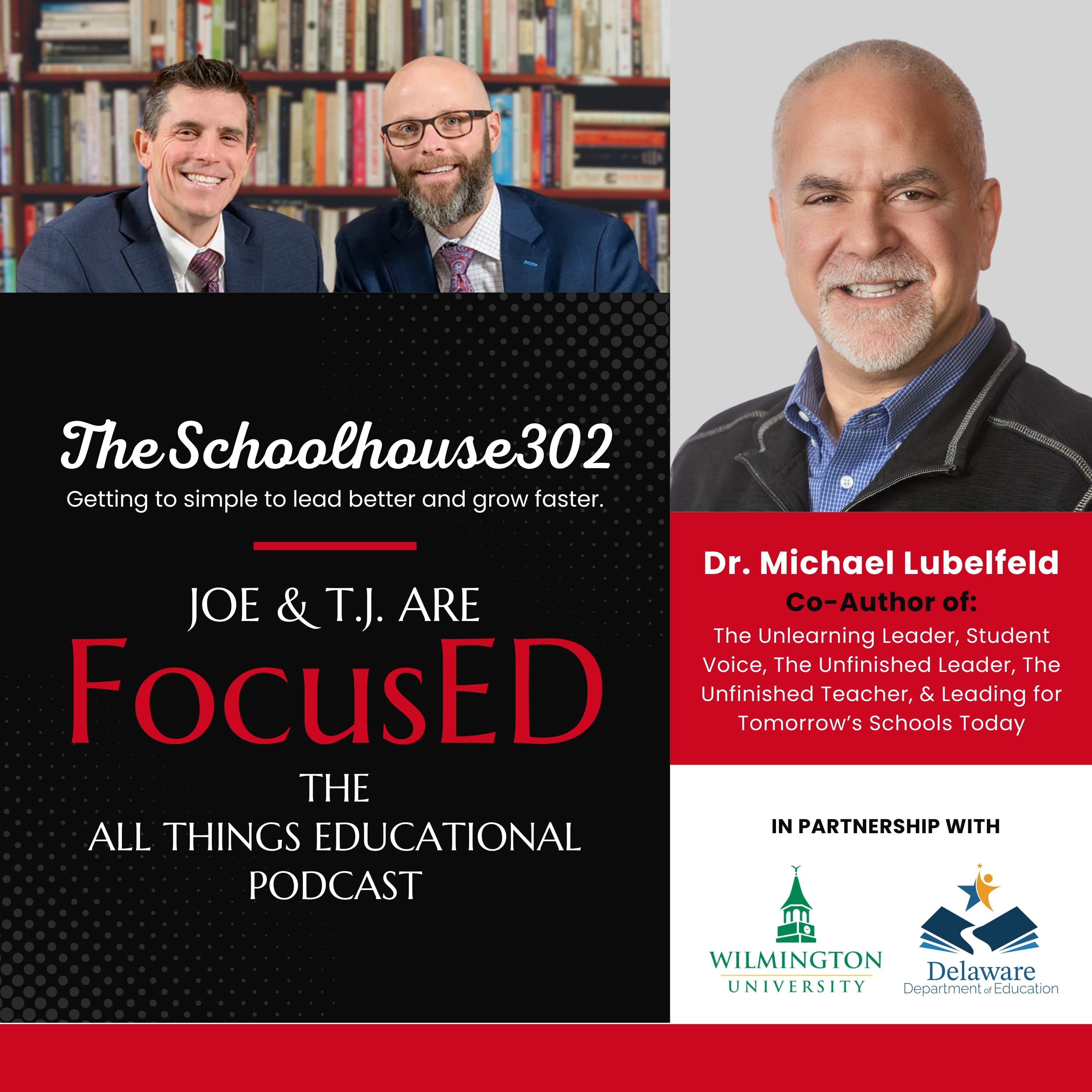FocusED

FocusED
Podcast Description
FocusED is your educational leadership podcast where our mission is to dissect a particular problem of practice and/or pinpoint a place of progress so that you can learn to lead better and grow faster in your school or district with more knowledge, better understanding, and clear direction on what to do next.
Podcast Insights
Content Themes
The podcast explores essential themes in education leadership, focusing on topics such as systemic thinking, social emotional learning, assessment reforms, and fostering high expectations among students and teachers, with episodes including discussions about leading an education revolution and the impact of SEL on lesson plans.

FocusED is your educational leadership podcast where our mission is to dissect a particular problem of practice and/or pinpoint a place of progress so that you can learn to lead better and grow faster in your school or district with more knowledge, better understanding, and clear direction on what to do next.
This episode of FocusED features superintendent and author, Dr. Michael Lubelfeld.
The episode centers on leading “tomorrow’s schools today,” with Dr. Michael Lubelfeld unpacking how change leadership, mindset, and systems thinking shape the future of K–12 education.
Lubelfeld and his co-author Nick Polyak use eight real-world case studies and two change frameworks—including the Virginia Satir model—to show that change is both loss and growth, and that leaders can navigate it with clarity and courage.
Their change framework stresses challenging the status quo, having open conversations, adapting and being flexible, navigating obstacles, generating a shared vision later in the process, and intentionally enjoying the journey.
The book’s case studies span cell phone bans, staff selection (“first who, then what”), reimagining ninth grade through interdisciplinary models, bilingual theater in a majority Hispanic district, and decade-long facility and program redesign framed as “we’re not broke, we’re broken.”
Lubelfeld emphasizes that aspiring superintendents learn their most important lessons as building leaders “in the trenches,” where they face resistance, manage complex days, and practice change at a smaller scale.
He urges leaders to rethink leadership development as a spectrum: graduate programs, technical training, webinars, podcasts, cohorts, and one-off sessions all add value when woven into longer-term learning pathways.
Drawing on the World Economic Forum jobs report, he notes that top 2030 skills blend AI, cybersecurity, and tech literacy with enduring human capacities like communication, resilience, and kindness, and that school systems must align preparation to this reality.
He pushes back on narrow “college for all” narratives, pointing to unfilled high-wage jobs such as auto mechanics and arguing that technical certifications and workforce pathways must sit alongside college and military options.
He frames challenging the status quo as respectful and coalition-based—not “going rogue”—by finding common ground across polarized groups and moving forward on shared priorities like equity, facilities, and teacher support.
Lubelfeld describes leadership as coalition-building rather than pure majoritarianism: in any controversial issue, about 30% strongly oppose, 30% strongly support, and the work is to engage the middle and pieces of each pole around common ground.
Networks are central to his practice: he implores leaders to “go where the smart people are” through national conferences, associations like AASA and SD, fellowships like Google GSV, and online professional communities.
He is candid that superintendents cannot know everything—from bonds to construction—and must “phone a friend,” using networks as a source of expertise, critical feedback, and truth-telling that local colleagues may hesitate to provide.
He draws heavily on positive psychology, especially Shawn Achor’s work, building gratitude into his personal practice and cabinet meetings to counteract the brain’s negativity bias and sustain joy in leadership.
He returns repeatedly to the idea that leaders should aim to be the next version of themselves, not the “best” final version, embracing the notion that they—and their leadership—are permanently unfinished.

Disclaimer
This podcast’s information is provided for general reference and was obtained from publicly accessible sources. The Podcast Collaborative neither produces nor verifies the content, accuracy, or suitability of this podcast. Views and opinions belong solely to the podcast creators and guests.
For a complete disclaimer, please see our Full Disclaimer on the archive page. The Podcast Collaborative bears no responsibility for the podcast’s themes, language, or overall content. Listener discretion is advised. Read our Terms of Use and Privacy Policy for more details.